In recent years, besides growing rice in highly alkaline soil, farmers in Thanh Hoa District (Long An Province) have applied multi-cropping and inter-cropping to new crops such as pineapples, purple yams, watermelons, limes and guavas which has had positive results.
Thanh Hoa District is the area most affected by saltwater intrusion and alkalinity in Dong Thap Muoi. Therefore, in the past, the economy of the district was not very promising. Recently, along with growing rice as the main crop, many farmers in Thanh Hoa have tried growing other appropriate crops in order to optimise cultivation.
38-year-old Nguyen Thanh Tai (Hamlet No. 5, Tan Tay Commune) has more than 10 years of experience in growing pineapples in alkaline soil. He has just started a new season of pineapple growing in a total area of 2.3ha. He said, “Pineapples are very suitable to alkaline soil. The more alkaline the soil, the sweeter the pineapple, as the saying goes. Pineapple prices are stable lately, exciting us farmers”. Apart from pineapples, Tai also has a field of 2ha for guava growing.
Other crops that are suitable to alkaline soil are purple yams, jute, watermelons, limes and guavas. Thuy An Commune alone has more than 3,000ha of soil for purple yam growing.
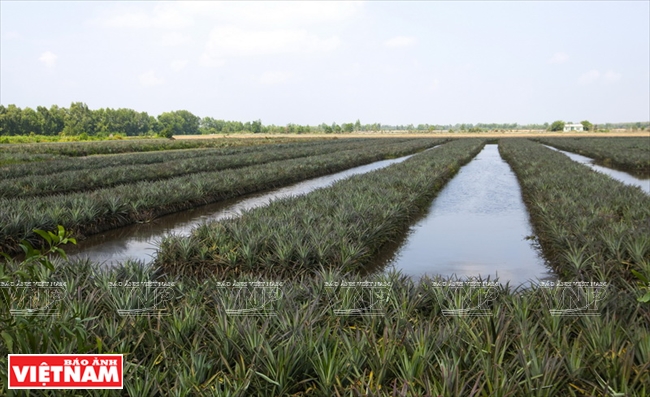
Pineapples flourish in the alkaline soil in Thanh Hoa District, Long An Province. Photo: Thong Hai/VNP
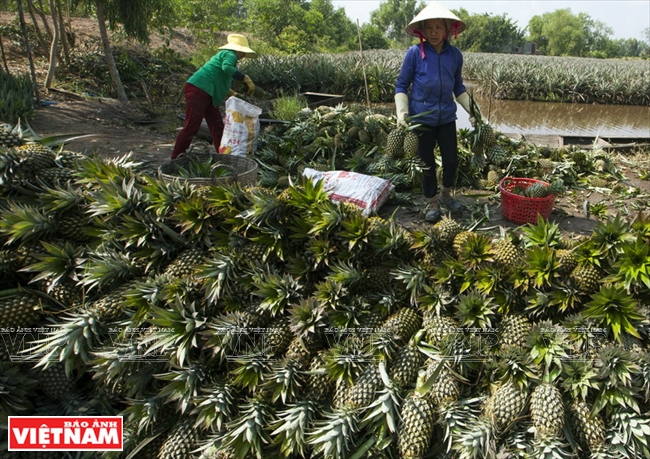
Harvested pineapples are gathered before being delivered to the market. Photo: Thong Hai/VNP
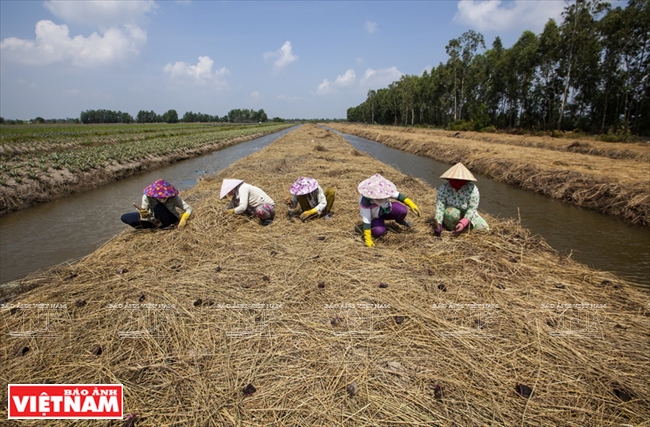
In early September, farmers in Tan Tay Commune prepare to grow purple yam. Photo: Thong Hai/VNP
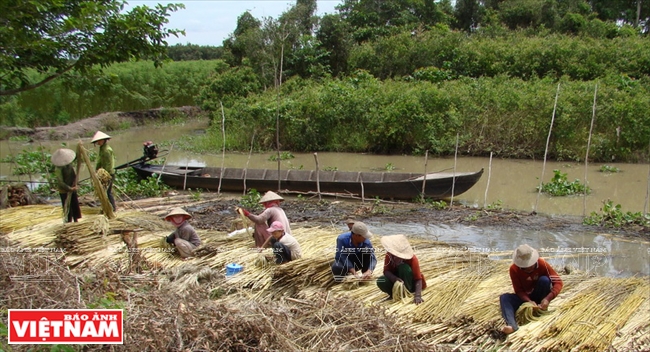
Farmers harvest jute. Photo: File
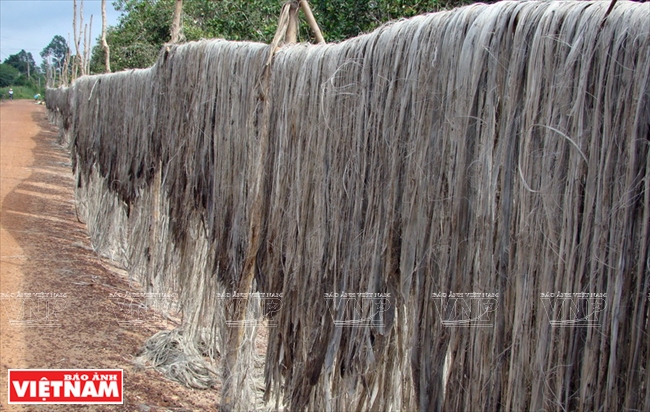
Jute is sun-dried before processed. Photo: File
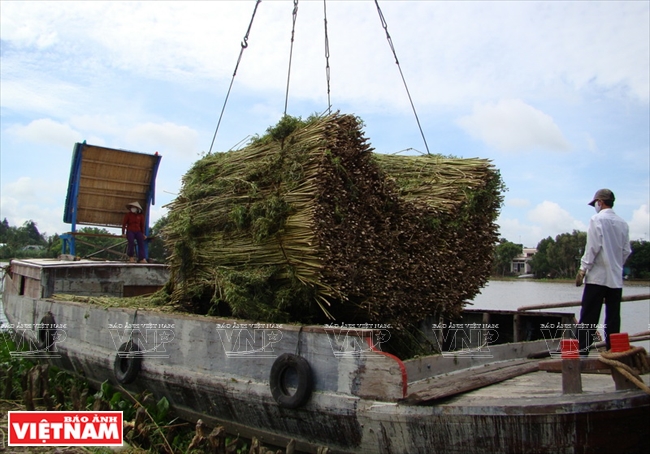
Jute is harvested and delivered by ship. Photo: File
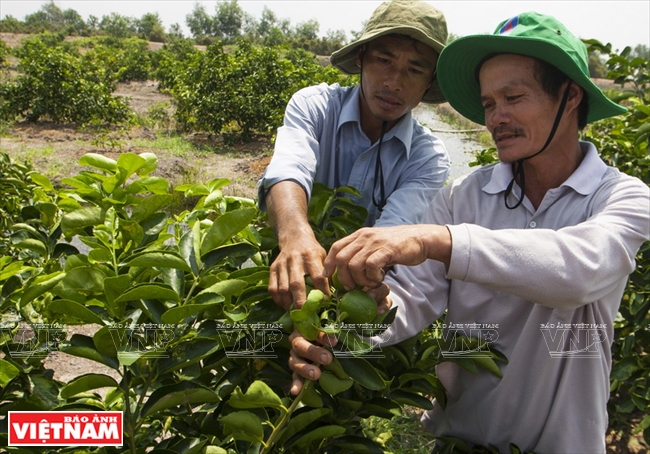
Le Van Hung (front) shares his experience in growing seedless limes with a neighbour.
Photo: Thong Hai/VNP
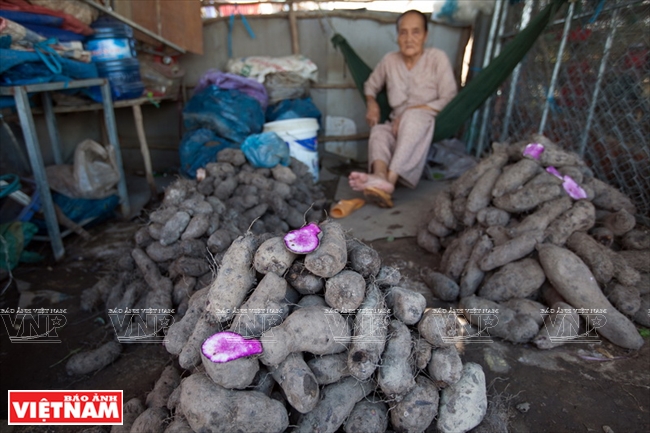
Purple yams sold at a local market. Photo: Le Minh/VNP
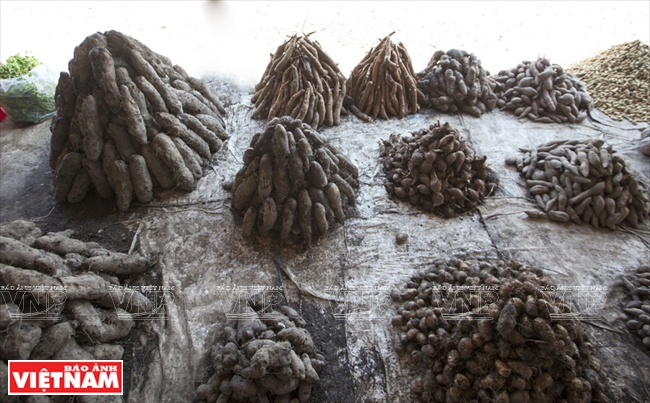
Some typical fresh produces of Thanh Hoa. Photo: Thong Hai
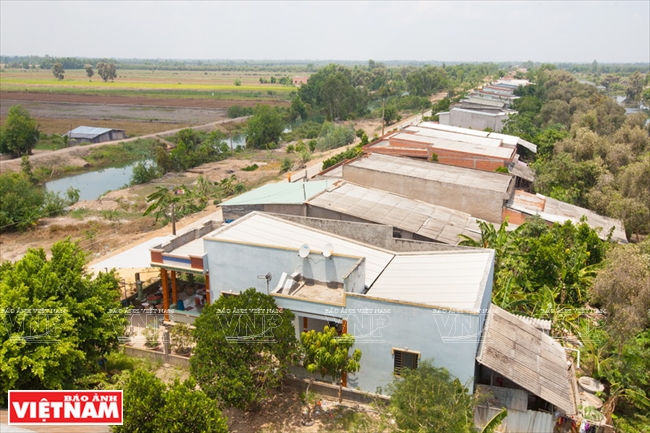
Flood-resisting house block for farmers in Tan Tay Commune, Thanh Hoa District, Long An Province.
Photo: Le Minh/VNP |
58-year-old Le Van Hung (Hamlet No. 5, Tan Tay Commune) moved from Go Cong to Thanh Hoa in 1993. In the beginning, he grew rice and cajuput trees but had low productivity. Realising the advantages of seedless lime trees, which produce large juicy fruit with a thin outer skin, such as high productivity, stable output and suitability to alkaline soil, in 2012, he decided to use 2ha of land to grow seedless lime trees instead of rice.
Hung acknowledged that lime trees produce fruit for harvest in 18 months after planting. He has also learned techniques to make the lime trees produce fruit out of season early in the year, to sell at a higher price of about 30,000VND/kg to secure a good income for his family.
So far, many local farmers have been actively involved in cooperatives or other groups to collaborate on the production process to reduce investment costs and increase profits.
Dong Thap Muoi Agricultural Research and Development Centre has conducted practical studies on alkaline soil and suitable crops as well as tending techniques to build specific procedures for farmers in Thanh Hoa. Thanks to that, many households have applied polyculture such as growing jute or watermelons in proximity with rice or growing pineapples and purple yams alternatively.
According to Le Van Hoang, Director of the Agriculture and Rural Development Department of Long An Province, the current application of polyculture that helps increase output and diversify crops is the appropriate approach to sustainable development in Dong Thap Muoi.
Between 2010 and 2015, the total annual food output in Thanh Hoa District reached 250,000tonnes, equivalent to nearly 2,000 billion dong. The average annual agricultural development rate of the district in this period was 5.9%.
(Report to the 6th Party Congress of Thanh Hoa District, tenure 2015-2020)
|
Bài: Sơn Nghĩa - Ảnh: Lê Minh, Thông Hải & Tư liệu